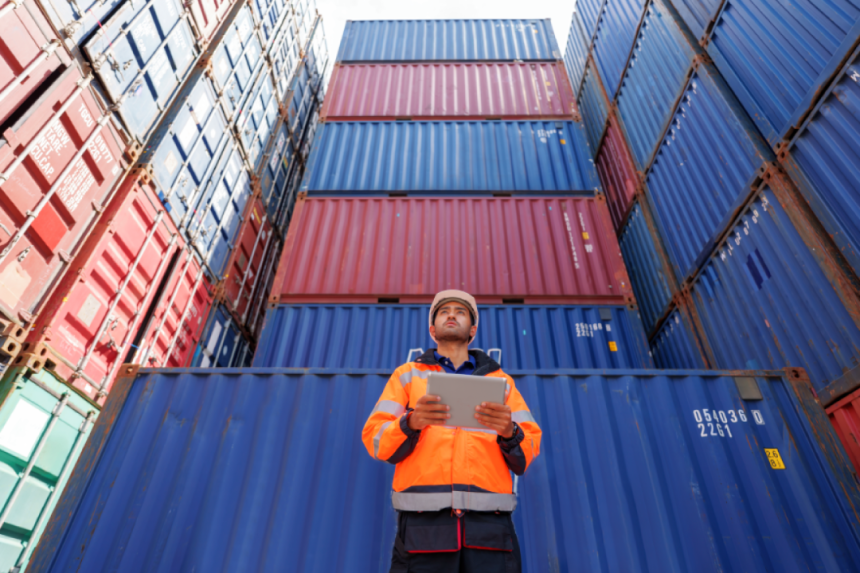PixeloneStocker/Getty Images
Key takeaways
- Tariffs are taxes on imported goods that are paid by the importer, used by the government to protect domestic industries, generate revenue and provide a negotiation point with foreign countries.
- Tariffs have the potential to increase prices, shift supply chains and stimulate domestic production and industry.
- Small businesses can manage tariffs by adapting their supply chains, cutting costs and changing what products and services they offer.
Tariffs, also known as import or duty taxes, are used by governments to navigate trade deals with other countries, encourage domestic production of certain goods and in order to generate revenue for the government.
Tariffs have the potential to both positively and negatively impact small businesses, depending on the goods and services they offer. While tariffs increase the prices of goods, services and equipment that are vital to many business operations, they also have the potential to protect production and increase revenue for domestic producers.
Here’s what you should know about tariffs and how they can affect your business.
What are tariffs?
Tariffs are a tax placed on imported goods coming into a country or territory. Because of this, tariffs increase the cost of importing goods.
Tariffs act as a negative incentive against importing goods and materials. Importers will have to raise their prices, cut their profit margins or route their goods through a country with lower or no tariffs. Consumers and businesses, in turn, are incentivized to find cheaper alternatives.
Who pays for tariffs?
The tariff is paid directly by the importer. For example, if you purchase $10,000 of steel from a foreign country, and your own country has a 10 percent tariff on steel, then you would have to pay an additional $1,000 in order to pay the tariff.
While businesses and consumers don’t always pay tariffs directly, the increase in cost can trickle down, increasing the cost of imported goods and parts.
Depending on the tariff policy, some countries will have exemptions in place for smaller packages and imports, known as the de minimis rule. This allows for businesses with orders under a certain threshold – such as $800 – to avoid paying taxes and fees.
There is widespread agreement among economists that tariffs of their recent scale raise the risk of higher inflation, slower growth and even a recession.
— Mark Hamrick, senior economy analyst, Bankrate
Why are tariffs used?
Governments implement tariffs for a variety of reasons, including:
- Protecting domestic production. If a government wants to promote the purchase of domestically-producted goods within their country, and not have domestic sales be undercut by cheaper products from overseas, they can impose tariffs to raise prices on foreign goods and encourage purchases to buy domestic products.
- As a negotiation tactic. Tariffs allow a government to cut off access to its country’s consumer base, giving them leverage at the negotiation table. A country with unfair trading practices, for example, or committing human rights violations can be pressured to take action with the threat of tariffs potentially cutting off trade.
- Increased government revenue. Governments can use import taxes to fund government programs or to cut taxes in other areas.
While tariffs can be implemented with good intentions, how and why they’re implemented can have a big impact on whether they have the intended effect.
“There is widespread agreement among economists that tariffs of their recent scale raise the risk of higher inflation, slower growth and even a recession,” said Mark Hamrick, senior economic analyst for Bankrate.
Recent tariffs by President Donald Trump have been criticized by economists and businesses for being implemented haphazardly broadly, causing economic upheaval for the United States economy.
“Historically, tariffs have been more targeted, or strategic, than what we’ve seen in 2025,” Hamrick said. “Among the potential impacts are a disruption or financial challenges for businesses within the U.S. forced to decide whether to pay the taxes or forgo the orders.”

Business owners face worry, uncertainty as Trump’s tariffs loom
Trump’s tariff whirlwind is leaving business owners worried about price hikes and supply issues.
Learn more
How tariffs affect small businesses
The biggest impact tariffs have on businesses and local economies is on the cost of imported goods.
“Businesses which can afford to pay them must decide how much of the price increases to absorb, or pass some or all of them along to their customers,” Hamrick said.
Even if businesses avoid paying tariffs by forgoing imported goods, the cost of domestically-produced goods can be more expensive than imported goods, if they are available in the first place. Tariffs can also increase operation costs, as imported goods may be required for construction and manufacturing parts.
In summary, here are some of the ways tariffs can impact small businesses.
- Increased prices. Businesses either have to pay the tariffs and possibly raise prices, or rely on more expensive domestic goods.
- Increased cost of operations. Imported fuel, energy and materials can become more expensive, contributing to increased operating expenses.
- Growing inflation. If an economy is heavily reliant on tariffs, inflation may increase as the price of consumer goods goes up across the economy.
- Changing supply chains. As businesses and consumers look for cheaper alternatives, suppliers may source supply from local sources or countries with lower tariffs.
- Shortages and longer wait times. Tariffed goods may become less common or unavailable, and tariffed parts for construction and manufacturing can cause projects to take longer, causing further shortages.
- Increased domestic production and employment. If domestic goods are cheaper than tariffed ones, then consumers will buy more domestic products and incentive increased production, creating jobs and fostering growth.
How small businesses can manage tariffs
While you can’t always control when, where and how tariffs are implemented, there are a few steps you can take in order to protect your business.
- Reorganize your supply chain. Talk to your supplier to see where you can get goods from countries with lower tariffs, or if you can find a cheaper source domestically.
- Increase costs strategically. Instead of immediately increasing costs on the board, see if you can incrementally increase prices so your consumers don’t get sticker shock, or raise prices only on certain products.
- Change the goods and services you offer. If tariffed goods are too much of a cost burden, consider switching to cheaper alternatives.
- See where you can cut costs. You can reduce operation expenses by cutting staff, switching to cheaper packaging or moving to a less-expensive location.
- Have cash reserves on hand. Cash reserves can protect you in case of sudden price spikes.
- Band together with other businesses. Organizing with other businesses can allow you to order in bulk and stay on top of supply chain snarls.

How small businesses can survive tariffs, according to a supply chain expert
Surviving tariffs as a small business will take planning and flexibility. Here’s how you can take action.
Learn more
The bottom line
Tariffs are used by the government to control imports and exports. While tariffs can help create government revenue and protect domestic manufacturing, they also increase the price of imported goods, which trickles down to consumers and small businesses. Entrepreneurs can protect themselves by diversifying their supply chains, cutting costs and changing their offerings in order to focus on low or non-tariffed goods.
Frequently asked questions
Read the full article here














